From Ecclesiasticus:
Look at the rainbow, and praise him who made it; it is exceedingly beautiful in its brightness. It encircles the sky with its glorious arc; the hands of the Most High have stretched it out.
(From the Daily Office Lectionary – Sirach 43:11-12 (NRSV) – November 4, 2014)
Today in the US is the midterm election. I live in a decidedly “red” state with very little chance than any state office or congress seat currently held by the GOP will go to another party, partly because the Democrats chose a less-than-stellar gubernatorial candidate, partly because of gerrymandering, and partly because the Republicans simply predominate in most of the rural ad small-town electorate. Nonetheless, I will go to the polls and cast my “progressive” ballot and hope that elsewhere in the country things may be different.
What I hope most (and pray for) is that at some time in our national political future there will be a rainbow! That there will be an end to the rancorous, uncivil, winner-take-all, scorched-earth, no-compromise politics that has characterized this country for the past two decades, or longer…. When did it start, this deluge of polarization? I think it’s probably always been there at the fringes, but it seems to me it began moving to the center during the Nixon administration, arrived center-stage during the Clinton years, and has simply parked there ever since, the way a weather system can park over an area for days (in this case decades) at a time, bringing wave after wave of torrential downpour.
One of my favorite poems about rain is The Rainy Day by Rabindranath Tagore, who paints a dismal and scary picture of a village in monsoon season:
Sullen clouds are gathering fast
over the black fringe of the forest.
O child, do not go out!
The palm trees in a row by the lake
are smiting their heads
against the dismal sky;
the crows with their dragged wings
are silent on the tamarind branches,
and the eastern bank of the river
is haunted by a deepening gloom.
Our cow is lowing loud, tied at the fence.
O child, wait here till I bring her into the stall.
Men have crowded into the flooded field
to catch the fishes
as they escape from the overflowing ponds;
the rain-water is running in rills
through the narrow lanes like a laughing boy
who has run away from his mother to tease her.
Listen, someone is shouting for the boatman at the ford.
O child, the daylight is dim,
and the crossing at the ferry is closed.
The sky seems to ride fast upon the madly rushing rain;
the water in the river is loud and impatient;
women have hastened home
early from the Ganges
with their filled pitchers.
The evening lamps must be made ready.
O child, do not go out!
The road to the market is desolate,
the lane to the river is slippery.
The wind is roaring and struggling
among the bamboo branches
like a wild beast tangled in a net.
My feeling is that our monsoon of incivility, our rainy season of political polarization has had a similar effect on our national village; our sky is sullen, our roads are desolate, our lanes are slippery, and madly rushing political “rain” has made the river of democracy loud, impatient, and dangerous. My hope and my prayer is that it will end and we will see a rainbow.
My main thought for the day is contrary to Tagore’s, however: “O child, do go out!” Go out and vote!

====================
A request to my readers: I’m trying to build the readership of this blog and I’d very much appreciate your help in doing so. If you find something here that is of value, please share it with others. If you are on Facebook, “like” the posts on your page so others can see them. If you are following me on Twitter, please “retweet” the notices of these meditations. If you have a blog of your own, please include mine in your links (a favor I will gladly reciprocate). Many thanks!
====================
Father Funston is the rector of St. Paul’s Episcopal Church, Medina, Ohio.
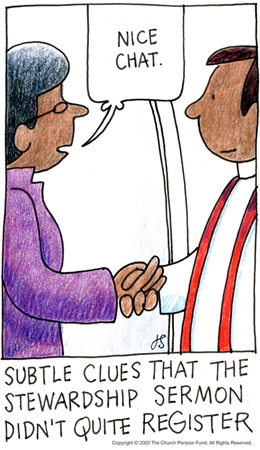 It’s about to come to an end, the annual appeal to church members everywhere to turn in a card saying how much they plan (hope, anticipate, expect, guess) to give in offerings in the coming year. Clergy everywhere are breathing both a sigh of relief that “stewardship season” is nearly done, while also wondering if there will be enough income to sustain the parish’s budget for another year. Congregational governing boards, treasurers, and budget committees are poring over the books and making plans – in some parishes they are adding new programs and new staff; in most, I suspect, they are trying to cut “fat” out of budgets already cut to the bone. I would guess there are more frowns than smiles being generated in the process of annual church budgeting.
It’s about to come to an end, the annual appeal to church members everywhere to turn in a card saying how much they plan (hope, anticipate, expect, guess) to give in offerings in the coming year. Clergy everywhere are breathing both a sigh of relief that “stewardship season” is nearly done, while also wondering if there will be enough income to sustain the parish’s budget for another year. Congregational governing boards, treasurers, and budget committees are poring over the books and making plans – in some parishes they are adding new programs and new staff; in most, I suspect, they are trying to cut “fat” out of budgets already cut to the bone. I would guess there are more frowns than smiles being generated in the process of annual church budgeting. The shadows tonight will be full of dreams moving from house to house, door to door, seeking handouts of candy or toys or whatever with a cry of “Trick or Treat!” We hope the wind will stay away, at least until America’s children’s annual celebration of the ancient Celtic feast of Samhain is completed.
The shadows tonight will be full of dreams moving from house to house, door to door, seeking handouts of candy or toys or whatever with a cry of “Trick or Treat!” We hope the wind will stay away, at least until America’s children’s annual celebration of the ancient Celtic feast of Samhain is completed.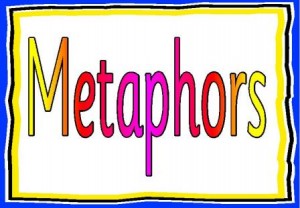 I often wonder what (if any) thought went into the construction of various lectionaries, particularly the Daily Office lectionary of the Episcopal Church. Are the sometimes strange, sometimes enlightening, often puzzling juxtapositions of texts planned or simply fortuitous?
I often wonder what (if any) thought went into the construction of various lectionaries, particularly the Daily Office lectionary of the Episcopal Church. Are the sometimes strange, sometimes enlightening, often puzzling juxtapositions of texts planned or simply fortuitous? 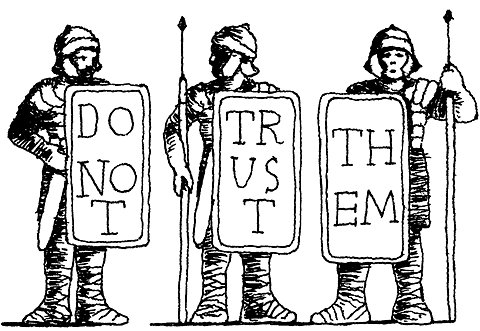

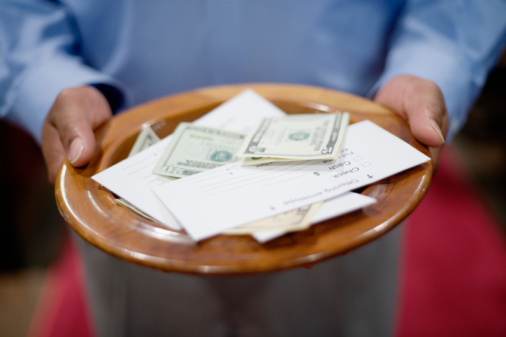

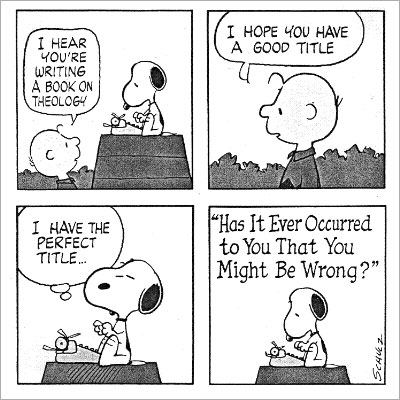
 I suppose that if “an angel of the Lord” told me to “get up and go” that I’d do as Philip did, even in these times when a trip to Gaza would not be the most pleasant journey one could make. I have often remarked at the willingness of the early disciples to drop everything and respond to these calls to ministry. The response of the first of the apostles, of Simon Peter and his brother Andrew, of James and John (the sons of Zebedee), to leave their fishing businesses and take off with Jesus is the same. (Mt 4:18-22) The response of Matthew (or was he called Levi) to leave his tax booth is the same. (Mt 9:9) “Come” and they come; “get up and go” and they go. Modern folk are seldom so swift to respond.
I suppose that if “an angel of the Lord” told me to “get up and go” that I’d do as Philip did, even in these times when a trip to Gaza would not be the most pleasant journey one could make. I have often remarked at the willingness of the early disciples to drop everything and respond to these calls to ministry. The response of the first of the apostles, of Simon Peter and his brother Andrew, of James and John (the sons of Zebedee), to leave their fishing businesses and take off with Jesus is the same. (Mt 4:18-22) The response of Matthew (or was he called Levi) to leave his tax booth is the same. (Mt 9:9) “Come” and they come; “get up and go” and they go. Modern folk are seldom so swift to respond.

